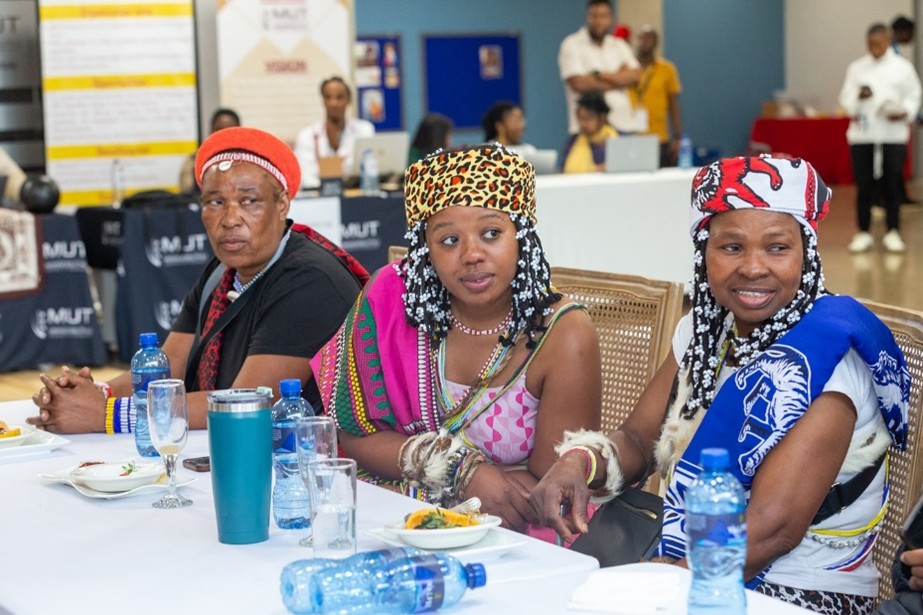SAMRC scholar leading the integration of indigenous knowledge into modern healthcare practices and research

Traditional health practitioners attending the 2nd Traditional Medicine Regional Symposium
As we bring Women’s month to a close and step into Heritage month, we celebrate women’s role in preserving culture, promoting healing, and shaping the future of healthcare in Africa. Women continue to bridge the gap between African Traditional Medicine (ATM) and Western Medicine, ensuring that African knowledge systems remain central to the health and well-being of its people.

One such woman is Ms Nokukhanya Thembane, an SAMRC scholar funded under the SAMRC Researcher Development Programme. On 28–29 August 2025, Ms Thembane led the 2nd Regional Traditional Medicine Symposium, hosted by the MUT Faculty of Applied and Health Sciences at the Southern Sun Elangeni Hotel in Durban. The meeting brought together traditional medicine practitioners, researchers, academics, policymakers, and various other healthcare stakeholders to explore the power of indigenous knowledge in advancing health under the theme: “Harnessing African Indigenous Knowledge for Good Health and Well-being.”
Ms Thembane stated, “The Traditional Medicine Day is observed annually on the continent on 31 August to honour the integral role of traditional medicine in the health and welfare of generations of people on the continent. This year’s symposium celebrated the innovation, wisdom, and evolving role of traditional medicine in Africa’s contemporary health systems. The World Health Organization estimates that around 80% of the population in low and middle-income countries depends on traditional healers for their healthcare needs. Although significant progress has been made in integrating traditional medicine into South Africa’s healthcare legal framework, its full potential, in terms of research, local manufacturing, and commercialization, remains largely untapped. Our vision is to see ATM being recognised similar to Traditional Chinese Medicine; which is both offered as a formal course of study and practiced alongside Western medicine in hospitals and primary care facilities in China”.
Dr Abeda Dawood commented, “Historically, women have always been custodians of indigenous knowledge, particularly in identifying and harvesting medicinal plants, and they are often the first point of care in communities, especially in rural areas. It is heartwarming to see one of our female scholars leading such an important initiative which recognises the ATM philosophy, education and practice”.
